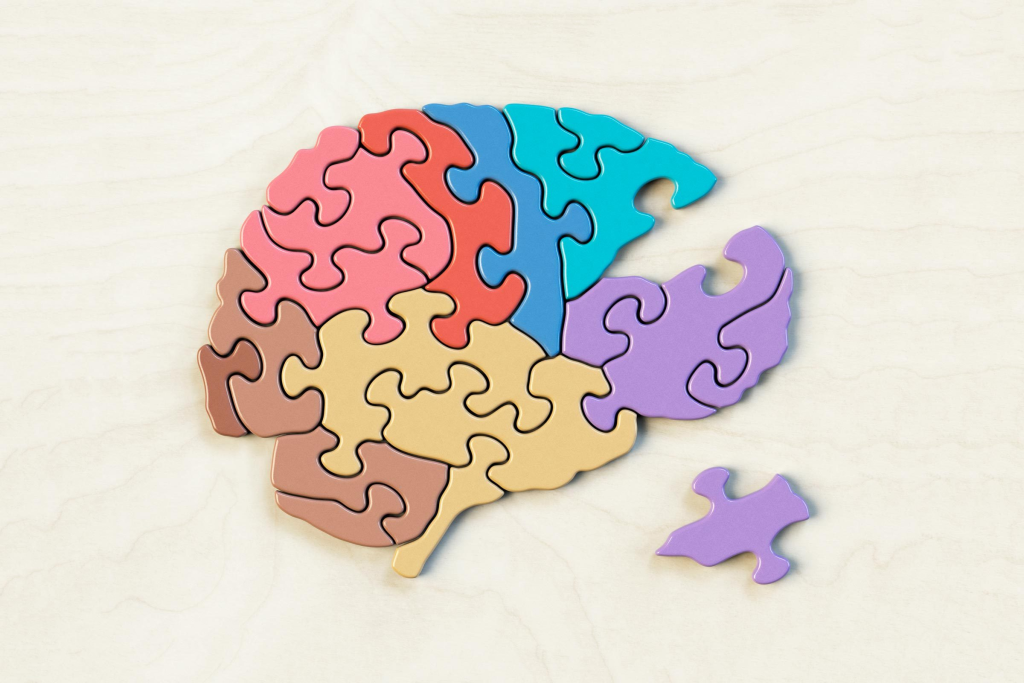Do you often feel like your mind is clouded, sluggish, or not working at its best? You’re not alone. Many of us experience brain fog from time to time—whether it’s due to stress, poor sleep, or simply the overwhelming demands of daily life. But here’s the good news: with a few simple brain exercises, you can clear that mental haze and restore clarity to your thinking. Let’s dive into eight effective exercises that will boost your brain power and improve your mental well-being.

Table of Contents
What Can Happen After 30 Days of Brain Exercises
| Benefit | Description |
|---|---|
| Improved Focus and Concentration | Regular brain exercises help sharpen cognitive functions, leading to better focus and the ability to concentrate for longer periods without distractions. |
| Enhanced Memory Recall | Engaging in memory exercises strengthens the brain’s ability to store and retrieve information, improving both short-term and long-term memory recall. |
| Increased Mental Clarity | Over time, consistent practice of brain exercises clears mental fog and enhances cognitive clarity, making it easier to think and make decisions. |
| Better Stress Management | Brain exercises like mindfulness meditation and deep breathing promote relaxation and improve the brain’s ability to cope with stress, reducing anxiety levels. |
| Boosted Problem-Solving Skills | Mental challenges such as puzzles and memory games encourage critical thinking, boosting your ability to solve problems and think creatively. |
| Reduced Mental Fatigue | Regular exercise increases blood flow to the brain, reducing mental fatigue and enhancing overall cognitive energy and stamina throughout the day. |
| Improved Mood and Emotional Resilience | Brain exercises help manage emotional responses, leading to greater emotional stability and a positive outlook on life. |
| Stronger Neural Connections | Regular practice of brain exercises encourages neuroplasticity, leading to the formation of new neural pathways that improve brain function and adaptability. |
| Better Sleep Quality | Stress-reducing exercises like meditation and deep breathing can promote better sleep by calming the mind and lowering cortisol levels, resulting in more restful sleep. |
| Enhanced Cognitive Flexibility | Regularly challenging the brain with diverse exercises improves cognitive flexibility, allowing you to adapt more easily to new situations and think outside the box. |
Causes of Brain Fog
| Cause | Description |
|---|---|
| Stress | Chronic stress increases cortisol levels, which can impair cognitive function and lead to brain fog. |
| Poor Sleep | Lack of sleep or poor-quality sleep disrupts brain function, leading to mental fatigue, difficulty concentrating, and memory issues. |
| Nutritional Deficiencies | Deficiencies in vitamins and minerals like B12, Vitamin D, and omega-3 fatty acids can affect brain health and contribute to brain fog. |
| Dehydration | Insufficient water intake can lead to dehydration, which affects brain function, causing fatigue, lack of focus, and mental confusion. |
| Hormonal Imbalances | Changes in hormones, especially during menopause, pregnancy, or thyroid disorders, can affect mood, memory, and mental clarity. |
| Anxiety and Depression | Mental health conditions like anxiety and depression can cause feelings of mental fog, difficulty concentrating, and cognitive impairment. |
| Overworking and Burnout | Working long hours without adequate breaks can result in burnout, leading to reduced mental capacity, difficulty focusing, and mental exhaustion. |
| Underlying Medical Conditions | Conditions such as fibromyalgia, chronic fatigue syndrome, autoimmune disorders, and neurological conditions (like MS) can contribute to brain fog. |
| Medications | Certain medications, especially sedatives, antihistamines, and antidepressants, can cause side effects that include brain fog or mental cloudiness. |
| Chronic Illness | Ongoing health conditions, including diabetes, asthma, or chronic pain, can contribute to inflammation or fatigue, leading to cognitive difficulties. |
| Blood Sugar Imbalances | Fluctuations in blood sugar levels (e.g., from diabetes or hypoglycemia) can lead to cognitive dysfunction and mental fogginess. |
| Environmental Toxins | Exposure to toxins such as air pollution, mold, or chemicals can cause brain inflammation and mental fatigue, leading to brain fog. |
| Alcohol and Drug Use | Excessive consumption of alcohol or recreational drugs can impair brain function, leading to short-term and long-term cognitive issues, including brain fog. |
8 Simple Exercises To Fight Brain Fog
1. The Power of Deep Breathing: Clear Your Mind Instantly

Deep breathing is one of the quickest and most accessible ways to combat brain fog. By focusing on your breath, you activate your parasympathetic nervous system, which helps to reduce stress and increase mental clarity.
How to Practice:
- Sit in a comfortable position, close your eyes, and inhale deeply through your nose for four counts.
- Hold your breath for four counts, and then exhale slowly through your mouth for six counts.
- Repeat for 5–10 minutes.
Why It Works: This exercise reduces cortisol levels, the hormone responsible for stress, while increasing oxygen flow to the brain. It’s an instant refresher for your mind, helping you refocus and reset.
2. Engage in Mental Puzzles: Keep Your Brain Sharp

Engaging your mind in challenging activities like crossword puzzles, Sudoku, or logic games can significantly improve cognitive function and stave off mental fatigue. These exercises force your brain to think critically, problem-solve, and make connections, all of which improve mental clarity.
How to Practice:
- Start with puzzles that challenge your current abilities, but don’t overwhelm yourself.
- Try doing them for 15–20 minutes every day to gradually build your brain’s problem-solving muscles.
Why It Works: Mental puzzles stimulate different parts of the brain, promoting neuroplasticity, which is the brain’s ability to form new neural connections. This leads to enhanced cognitive function and better focus.
3. Physical Activity: Get Your Blood Flowing

Physical exercise isn’t just good for your body—it’s crucial for your brain too. Regular physical activity increases blood flow to the brain, delivering more oxygen and nutrients, which helps clear brain fog.
How to Practice:
- Go for a brisk walk or jog for at least 20 minutes daily.
- If you’re short on time, try jumping jacks, push-ups, or stretching exercises.
Why It Works: Exercise stimulates the release of endorphins, improving mood and mental clarity. It also helps reduce inflammation and improves overall brain health.
4. Mindful Meditation: Reset Your Mind

Mindfulness meditation is a great tool for clearing mental clutter. This practice helps you stay present, focus on the here and now, and calm racing thoughts that can contribute to brain fog.
How to Practice:
- Sit in a quiet space, close your eyes, and focus on your breath or a mantra.
- When your mind begins to wander, gently guide it back to your breath.
- Start with 5–10 minutes a day, and gradually increase the time as you get more comfortable.
Why It Works: Meditation helps reduce stress and anxiety, key contributors to brain fog. It also enhances focus, improves memory, and cultivates emotional resilience.
5. Memory Recall Exercises: Sharpen Your Mind
Memory recall exercises not only improve your memory but also help clear brain fog by stimulating your cognitive functions. These exercises challenge the brain to retrieve information, strengthening its ability to process and recall facts.
How to Practice:
- Try recalling a list of words or numbers that you’ve recently encountered.
- Alternatively, try recalling a specific event in detail and note down what you remember.
Why It Works: Memory exercises engage your hippocampus, which is responsible for learning and memory. This activity can improve mental sharpness and help reduce feelings of confusion or forgetfulness.
6. Visualization: Activate Your Brain’s Creative Power

Visualization is a powerful exercise that can help sharpen your thinking and clear brain fog. It encourages your mind to focus on positive imagery, which reduces stress and enhances mental clarity.
How to Practice:
- Close your eyes and picture a peaceful scene, such as a beach or a forest.
- Focus on the details—the sound of the waves, the smell of the trees, or the feel of the breeze.
- Alternatively, visualize yourself successfully completing a task or goal.
Why It Works: Visualization activates the same neural pathways in the brain as real experiences, boosting cognitive function and emotional well-being.
7. Journaling: Clear Your Thoughts on Paper

Journaling is an excellent way to declutter your mind and organize your thoughts. When you write things down, you externalize your mental chaos, which allows you to view it with greater clarity and detachment.
How to Practice:
- Spend 10–15 minutes each day writing about your thoughts, feelings, or any challenges you’re facing.
- You can also try writing a “brain dump” where you jot down everything that’s on your mind without worrying about structure or grammar.
Why It Works: Journaling helps you process emotions, clear your mind, and gain a sense of control over your thoughts. It’s an effective way to reduce stress and mental overload.
8. Get Enough Sleep: Rest Your Brain

Sleep is crucial for maintaining a sharp mind and fighting brain fog. During sleep, your brain consolidates memories, clears out toxins, and repairs itself, making it ready for the challenges of the next day.
How to Practice:
- Aim for 7–9 hours of quality sleep each night.
- Establish a bedtime routine that helps you relax and unwind, such as reading or listening to calming music.
Why It Works: Sleep is essential for brain health. Lack of sleep leads to impaired cognitive function, poor memory, and difficulty focusing—all contributors to brain fog.
Do You Know? Brain Fog Is More Common Than You Think!
Many people experience brain fog, but it’s often misunderstood. While it can be caused by sleep deprivation or stress, it can also be linked to poor diet, dehydration, or even certain medical conditions. By incorporating brain exercises and improving your overall health, you can effectively combat this mental cloudiness and feel more energized and focused.
The Myth of “Multitasking” and Brain Fog
A common myth is that multitasking can boost productivity. In reality, multitasking can contribute to brain fog by overwhelming the brain and making it harder to focus. When you focus on one task at a time, you can clear your mind and improve your performance.
Conclusion: Clear Your Mind, Clear Your Life
Brain fog doesn’t have to control your life. With a few simple exercises and lifestyle changes, you can restore mental clarity, enhance cognitive function, and improve your overall mental health. Whether it’s through deep breathing, regular physical activity, or mindfulness, these strategies will help you fight brain fog and unlock your brain’s full potential. So, start today—your clearer, more focused mind is just a few steps away.
Frequently Asked Questions (FAQs)
What is brain fog, and what causes it?
Brain fog is a state of mental confusion or lack of clarity. It can manifest as forgetfulness, difficulty focusing, or feeling mentally “cloudy.” Common causes of brain fog include stress, lack of sleep, poor diet, dehydration, hormonal changes, or underlying medical conditions like anxiety or depression.
How can I tell if I have brain fog?
If you frequently experience difficulty concentrating, forget things easily, feel mentally fatigued, or struggle to stay focused on tasks, you may be experiencing brain fog. These symptoms can affect your productivity, mood, and overall mental well-being.
Can brain fog be prevented?
Yes, brain fog can often be prevented by maintaining a healthy lifestyle. Ensuring you get enough sleep, eating a balanced diet, staying hydrated, managing stress, and engaging in regular physical and mental exercises can all help prevent brain fog.
How does sleep affect brain fog?
Sleep is crucial for brain health. During sleep, the brain clears toxins, consolidates memories, and repairs itself. Inadequate or poor-quality sleep can lead to cognitive impairment, making brain fog worse. Aim for 7-9 hours of restful sleep each night to maintain mental clarity.
Can brain exercises help reduce brain fog?
Yes! Brain exercises such as puzzles, memory recall, and mental challenges activate different areas of the brain and promote cognitive function. Regular practice can enhance mental sharpness, improve focus, and reduce brain fog over time.
Is brain fog a sign of a serious medical condition?
In some cases, brain fog can be linked to underlying medical conditions, such as hormonal imbalances, chronic stress, or neurological disorders. If you experience persistent or severe brain fog, it’s important to consult a healthcare professional to rule out any potential health issues.
How long does it take to clear brain fog?
The time it takes to clear brain fog varies depending on the underlying cause and the steps taken to address it. For many people, practicing brain exercises, improving sleep, and making lifestyle changes can lead to noticeable improvements within a few days or weeks.
Can stress cause brain fog?
Yes, stress is one of the leading contributors to brain fog. Chronic stress can overload the brain, impairing memory and cognitive function. Reducing stress through techniques such as meditation, deep breathing, and exercise can significantly alleviate brain fog.






Awesome
Awesome
Awesome
Awesome
Very good
Good
Very good
Very good
Very good
Awesome